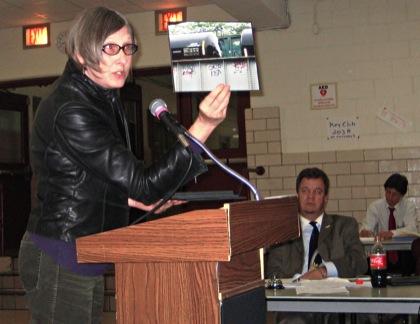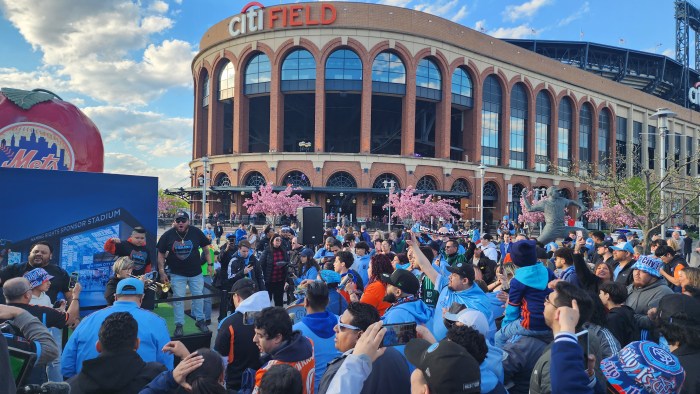By Jeremy Walsh
Residents of Glendale, Maspeth and Middle Village have long had a tempestuous relationship with the freight railroad that runs through the heart of the area, but an uneasy peace that existed since the settlement of a lawsuit earlier this year has deteriorated, with nine area civic associations banding together to pressure elected officials for change.
Civics United for Railroad Environmental Solutions, a group that includes Citizens of Maspeth and Elmhurst Together, the Glendale Civic Association and the Juniper Park Civic, was founded by Co-chairwomen Mary Parisen and Mary Arnold.
The group wants both the MTA and the state Department of Transportation to allocate more funds for inspections of trains, redirecting garbage containers to barge transfer stations and for retrofits to the New York & Atlantic Railway’s aging fleet of locomotives.
“Our neighborhoods have been neglected and dumped on for too long,” the group wrote in a letter to the transportation agencies and the state Senate Nov. 16.
New York & Atlantic President Paul Victor said he appreciated residents’ concerns and noted the railroad is currently working with the city Economic Development Corp. to secure grants to upgrade its diesel engines.
“It makes economic sense,” he said, but warned that the 16,000 gallons of diesel the railroad consumes a month is “a drop in the bucket compared to what’s consumed in the neighborhood” by trucks and home heating systems.
Christ the King High School sued the railroad last year after trains full of garbage containers destined for disposal out of the city were left standing for several hours nearby waiting for a locomotive from the larger interstate railroad CSX to pick them up. The suit was resolved with the agreement that the cars would be placed farther from the high school and CSX’s pickup schedule be revised for shorter wait times.
But neighbors farther north on the rail line have become upset with the arrangement. Middle Village resident Laura Zimmer said a New York & Atlantic locomotive frequently idles outside her 70th Street home early in the morning for as long as two hours, disturbing her sleep. She said she worried about the pollution the diesel engines were releasing into the neighborhood.
“We can’t sit in our backyards, we can’t hang our laundry,” she said, complaining also of the trash smell from deteriorating containers.
Victor said the railroad does not own any of the freight cars it transports and had no control over the condition of the containers.
“If they want to pay for Waste Management to get new cars, I guess Waste Management wouldn’t mind either,” he said.
Nearly all of the New York & Atlantic’s 11 locomotives are leased from the LIRR. None in current operation appears to have been built after 1977, though locomotives undergo periodic overhauls during their long service lives. The transit agency would have to give the OK for the upgrades, but Victor said it likely would have no objections.
The approximate price of a new switch engine is around $800,000 — high enough that many railroads opt to simply overhaul older locomotives. The Federal Recovery Act has provided funding to a number of states over the past year for locomotive engine replacements through the federal Environmental Protection Agency’s Clean Diesel program.
The Massachusetts Bay Transportation Authority received $1.1 million this year to repower 11 Boston-area commuter locomotives of roughly the same age and type as New York & Atlantic’s fleet.
But the price tag may be higher when it comes to prompting private railroads to do the same thing: The California Air Resources Board received $8.9 million this year to repower eight switch yard locomotives owned by Union Pacific Railroad and BNSF Railway.
Reach reporter Jeremy Walsh by e-mail at jewalsh@cnglocal.com or by phone at 718-229-0300, Ext. 154.
































